‘One of the things about being in Moscow as the guest of the Russian government,’ says Richard Dearlove, the former head of MI6, ‘is this real attempt to make you feel like an outsider.’ It comes, he says, ‘from a fundamental Russian suspicion of foreigners’: ‘The Kremlin is designed to intimidate you. It’s designed to make you feel as if you are at the centre of a great empire.’
Dearlove joined the Secret Intelligence Service in 1966, and though spies are always a little cagey about their past, it seems he served as an intelligence officer behind the Iron Curtain. After a stint as head of station in Washington, in 1999 he was appointed chief of MI6 by Robin Cook. It was then that he first met the man who is now Russian president. ‘I went to Moscow with Blair,’ recalls Dearlove when we speak via Zoom. ‘This was in that brief honeymoon period that we had with Russia after 9/11, and I was present at those meetings between Putin and Blair.’
Like Dearlove, Vladimir Putin was also a spy chief. He started out as a mid-ranking officer in the KGB, working mainly in East Germany. When the USSR collapsed, Putin joined the FSB, the KGB’s successor agency, which eventually he came to lead. In 1999, when Boris Yeltsin could no longer carry on as president, he chose Putin to succeed him.
At first the new, sober Russian president seemed ‘someone we could do business with’, says Dearlove. But that quickly changed. In a classic piece of Foreign Office understatement, Dearlove recalls: ‘It was soon clear we were dealing with someone whose vision of Russia and Russia’s future was not going to be particularly accommodating.’
But there is nothing understated about Dearlove’s view of the war in Ukraine, which in his opinion has entered a phase of acute danger. ‘The problem at the moment is that if it goes badly for the Russians in the east now, Russia’s weakness enhances the danger of an escalation of the conflict,’ he says. ‘I don’t think Russia can afford a long military conflict. If sanctions are tightened and there’s no significant victory or advance, this makes me worry that Putin will want or need to do something dramatic.
‘I think there is a risk of what is referred to as a battlefield tactical nuclear weapon. If it goes really badly for Russia in the Donbas and in Luhansk, then it’s possible that they could demonstrate their capabilities with a battlefield nuclear weapon, as a preliminary to declaring some sort of victory.’
It is deeply alarming to hear this assessment from a former head of MI6. If Russia were to deploy nuclear weapons on the battlefield in Ukraine, it would change not only the path of the war, but of history. No tactical nuclear device has ever been used before. The global security order would have entered a new, dangerous era. The full consequences of that are unknowable.
Putin has already signalled his willingness to consider a nuclear strike. Back in February, he publicly ordered his nuclear forces to place themselves on high alert. It seemed at the time that he was warning the West not to intervene in his war. More recently, Putin’s ghoulish cheerleaders on state–controlled TV have raised the possibility of a Russian nuclear strike. However, the threat arises once more precisely because Putin’s war has gone so disastrously wrong.
‘The Russian military took a dreadful beating trying to come down that narrow gap from the north and take Kyiv,’ says Dearlove. ‘Their intelligence must have been so misplaced. The Russians are very good at collecting intelligence. They’re very bad, in my view, at developing the link between intelligence and policy and decision-making. That’s one of the fundamental weaknesses of the Russian system.’
That structural weakness misled Putin into believing that his army ‘could drive straight to Kyiv and would be met by cheering crowds with bunches of flowers’. The advancing Russian soldiers were so confident of quick success that they ‘had their dress uniforms all packed in their armoured vehicles and they were planning a victory parade within a week’. It was, Dearlove says, ‘a catastrophic miscalculation’.
Russia’s failure to understand the reality of a full invasion of Ukraine, and the terrible losses that have resulted from that misjudgment, now pose a direct threat to Putin himself. ‘If we take the Ukrainian estimates of casualties,’ says Dearlove, ‘they’re talking about over 20,000 deaths and four times that number for injuries or incapacitation. If that’s the case, it will be seeping back into every aspect of Russian society, given that these young conscripts come from every village in the country. However tight your control from the centre, you can’t really cover it up if it’s going that badly.’
Does Putin see the weakness of his position? Or has he been so corrupted by power that he is blind to reality? He certainly appears an isolated and increasingly weird figure. ‘His whole physiognomy has changed,’ says Dearlove, who still remembers the Putin of the early 2000s. ‘He certainly didn’t look like that when he started.’ The extreme degree of change in his appearance suggests that ‘there may be some medical explanation for what he’s like now. There’s something very physically odd about him’.
A disastrous war, overseen by an ailing despot – might Putin be toppled? ‘I think there is a threat if it goes really badly that he could be deposed or sidelined,’ says Dearlove. ‘Maybe the scenario of illness and being removed to a sanatorium and of a new figure emerging is how it would happen.’
However, ‘if there were to be some sort of coup’, says Dearlove, ‘it would have to be people at the centre of power in Moscow who decide he’s expendable. There can’t be a fundamental change of policy until he’s gone.’ And after that? ‘Maybe [Alexei] Navalny becomes president,’ he suggests.
But no matter what happens, whether Putin survives in office or not, there appears no good outcome for Russia. The economy is crumbling and the international sanctions are only going to get tougher. Europe, the main customer for its energy resources, is making other arrangements. A new role as China’s petrol pump would have limited attractions.
Putin has failed at every turn. So what has driven him to this? What could motivate the leader of a resource-rich nation with a glorious cultural heritage and huge economic potential to carry out such a horrifying military adventure? Dearlove considers this for a moment and responds with an anecdote.
‘I remember Condi Rice saying to me: “Well, Richard, Russia at the moment has got a GDP between Italy and Denmark. Why should we treat them as a world power?” It was a very revealing political comment,’ he says. ‘At the time, perhaps it reflects a failure to take Russia seriously post-Cold War.
‘What we have in Russia now – and I think this is what changed Putin – is post-imperial anxiety, which comes from Russia’s loss of position and influence. At the moment what we see is the serious decline of Russia, both economically and politically.’ Looked at in this way, Putin’s war in Ukraine is an attempt to fight against that decline, to lash out against a perceived threat to the Russian empire in the form of a democratic Ukraine.
But in fighting to preserve the myth of a greater Russia, Putin has brought about the opposite of what he intended. He has deployed his forces in the field, but, as Dearlove says, ‘the Russian military is looking pretty incompetent’.
Russia itself is in a state of collapse. Millions of its citizens have left during the war, which will accelerate the decline of its already shrinking population. ‘It’s going to take Russia a very long time to recover politically and morally from this,’ says Dearlove, who despite it all retains a deep affection for the country and its culture.
‘There is a theme in Russian painting and art,’ he says, ‘which is the suspicion of foreigners and the depiction of them as intruders.’ In a bitter irony, Russia has become the intruder – and it is trapped. The danger now is that Putin’s reaction to being cornered in Ukraine could prove even more destructive than the war itself.
Got something to add? Join the discussion and comment below.
Get 10 issues for just $10
Subscribe to The Spectator Australia today for the next 10 magazine issues, plus full online access, for just $10.
You might disagree with half of it, but you’ll enjoy reading all of it. Try your first month for free, then just $2 a week for the remainder of your first year.

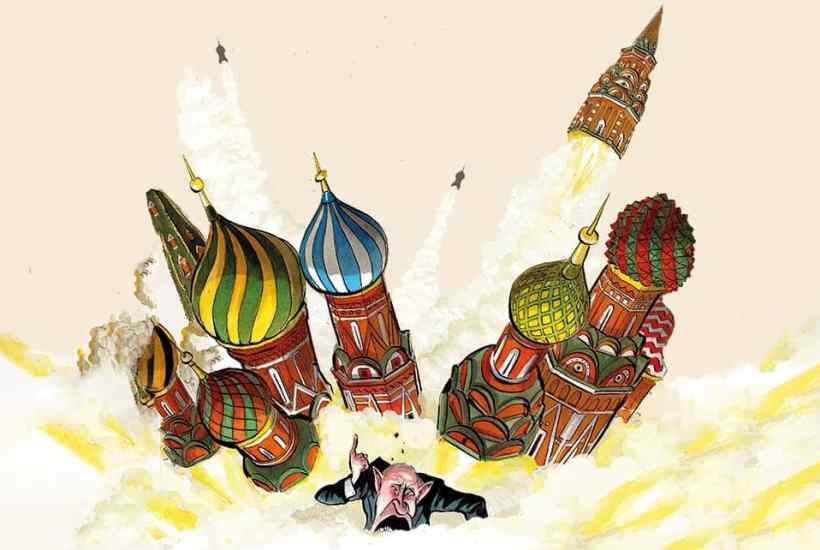
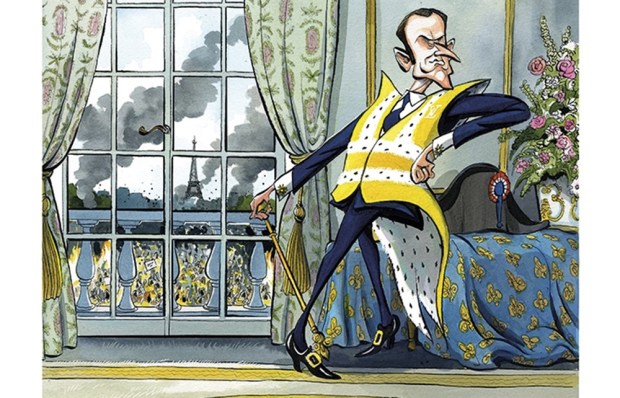
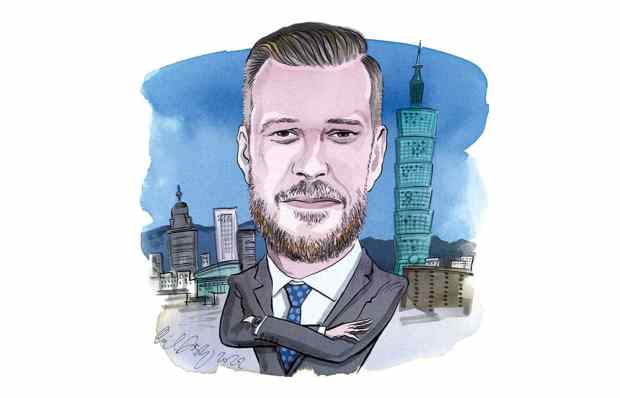
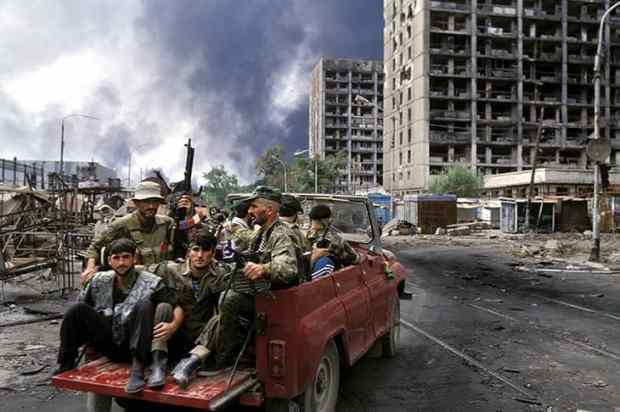
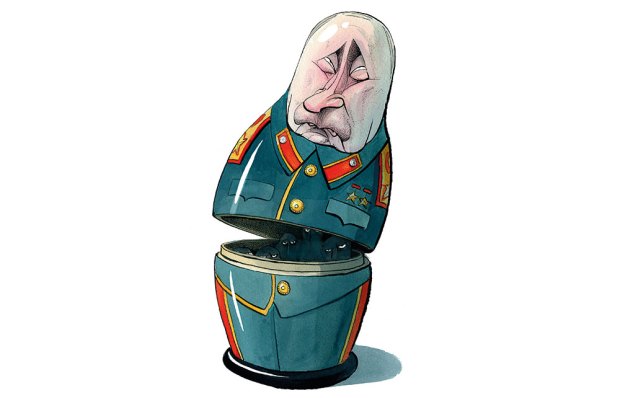
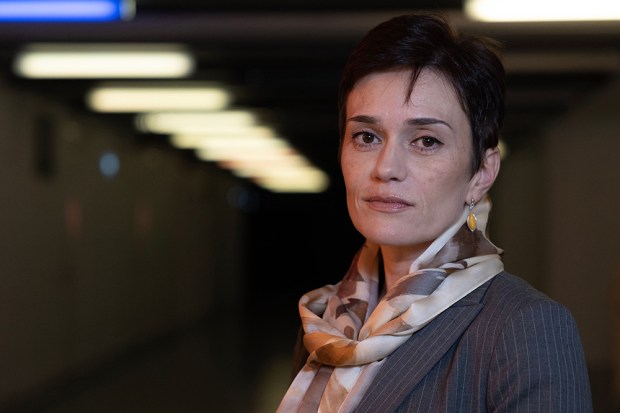







Comments
Don't miss out
Join the conversation with other Spectator Australia readers. Subscribe to leave a comment.
SUBSCRIBEAlready a subscriber? Log in